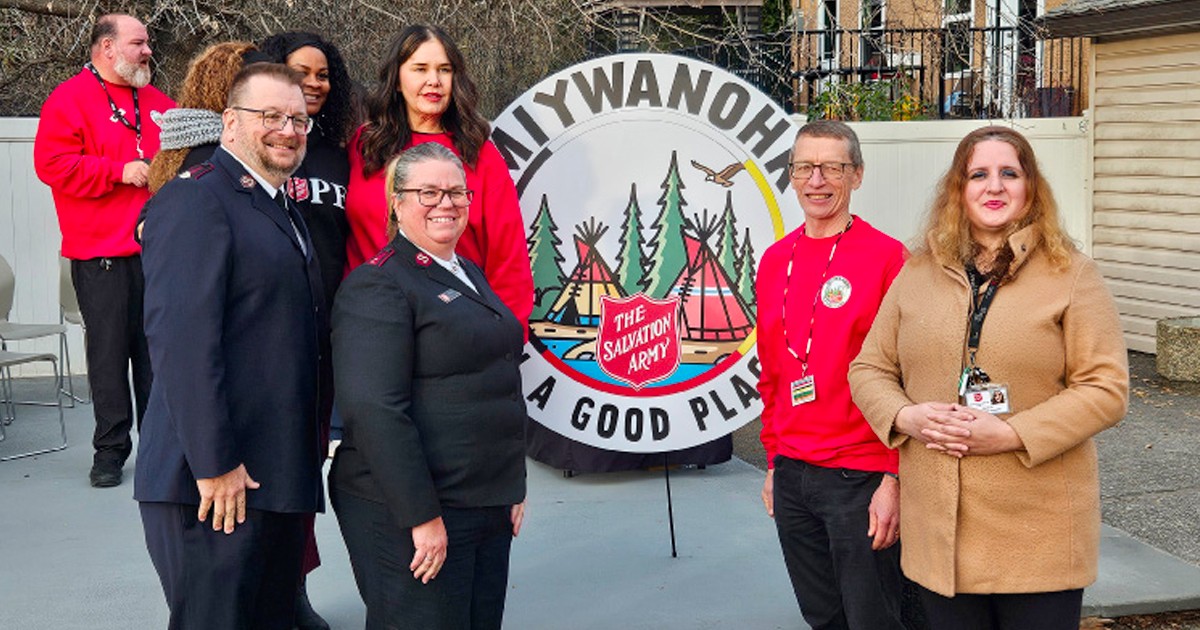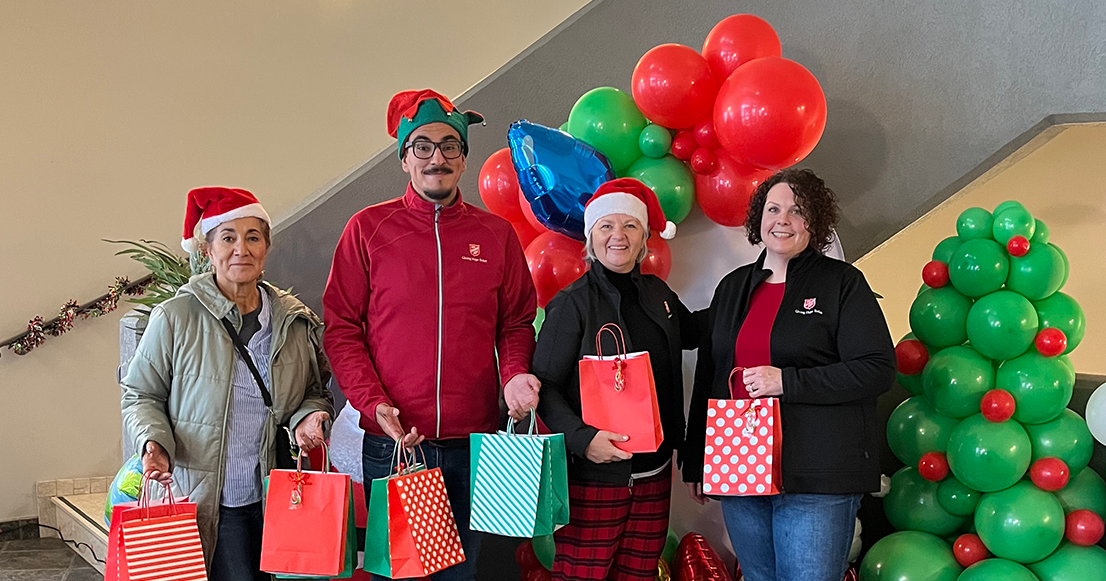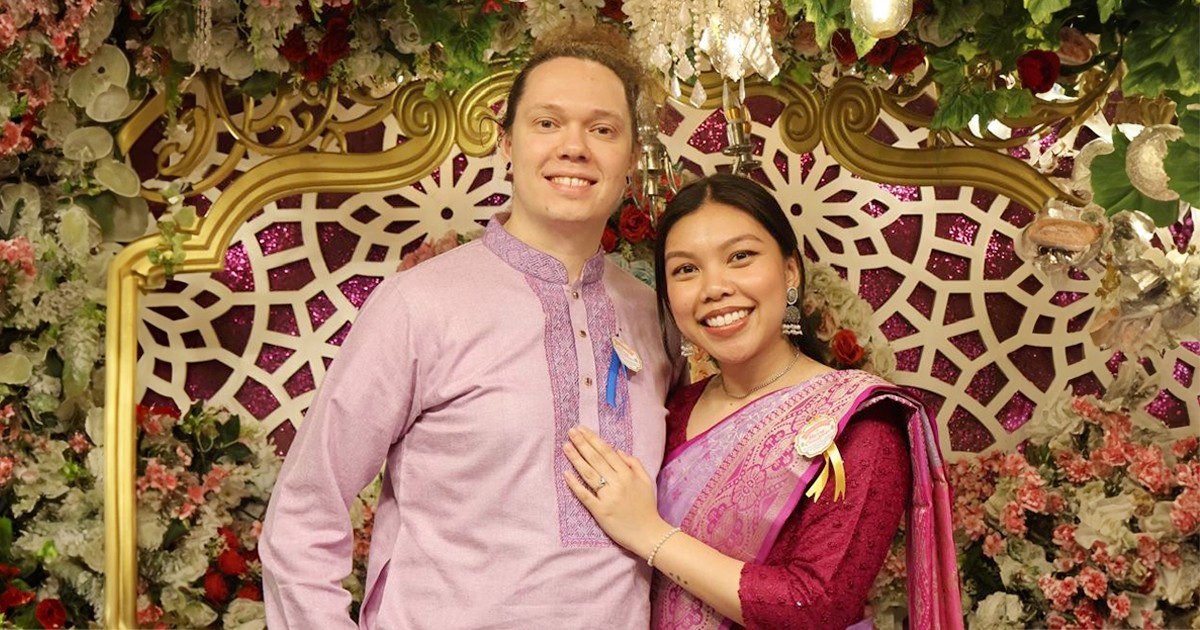Sarah’s Place, a transitional housing program for women in Winnipeg, is more than just a shelter. It is a safe, dignified and inclusive community where women find sanctuary and support to embark on their healing journey.
Designed for women predominantly healing from exploitation, substance addiction and various forms of trauma, Sarah’s Place serves as a bridge between emergency shelters and long-term housing. “It’s that in-between space that allows them to gain the skills they need and to figure out how to heal from past experiences,” explains Dianna Bussey, executive director of The Salvation Army’s correctional and justice services in Winnipeg. “These women are together on their journey toward healing.”
Safety and Support
Funded by the Department of Justice Canada Victims Fund, Sarah’s Place emphasizes individual growth within a caring, safe and nurturing community of women living together. With 13 single apartments, each resident is offered the freedom of living independently while receiving the support of The Salvation Army and other women who have shared experiences.
Every apartment at Sarah’s Place features a kitchenette equipped with essential appliances, a private bathroom and shower, and a smart TV. “Everybody who comes in sees that bathroom, and it makes them cry,” says Bussey, who shares the impact that these simple yet dignifying amenities have on the residents. “It’s incredibly moving. They feel safe inside that room and the washroom.”
There are also common spaces, including a kitchen and lounge with a TV, couches, dining tables and a cabinet full of games to encourage gathering.
The community living model at Sarah’s Place is guided by a set of principles lived out by residents and staff. While there isn’t a set daily program, regular “house meetings” offer a safe space for discussion, reflection and camaraderie. For those with a history of substance use, the program includes a commitment to daily addiction treatment meetings during the initial three months, with many women choosing to continue meetings as part of their everyday living.
Care Without Question
With women coming from various vulnerable backgrounds where they may have experienced homelessness, violence and abuse, substance misuse and addictions, or incarceration, Sarah’s Place remains focused on offering trauma-informed service without question.
“Exploitation is prevalent,” explains Bussey. “When we meet someone, whether they are coming from an emergency shelter or an addiction program, we realize that there is likely a history of trauma there. We don’t have to ask—they will tell us when they are ready—but our system is in place to support them.”
Trauma-informed service recognizes that trauma and trauma reactions exist in many individuals who are accessing Salvation Army programs. These experiences shape the way people behave and the unique emotional, physical and spiritual needs that come with having experienced trauma.
“We are a safe place for people to listen and reflect on what has happened, how it has affected them and what they need going forward,” says Bussey, who participated as a guest speaker in a seminar led by The Salvation Army’s modern slavery and human trafficking department in September. During the seminar, she discussed the approach to service at Sarah’s Place and how it supports women healing from trauma, including many forms of exploitation.
Set for Success
“The residents who come through Sarah’s Place are set up for success outside of the program through the connections that they are making with each other, but also through larger community supports. They are building bridges within the community,” explains Bussey.
Some find these connections through volunteering, taking part in activities, accessing external resources or supports, or even attending a Salvation Army corps or another church. “We’re finding that there is an opportunity for residents to connect with the larger Salvation Army community through Sarah’s Place. That is our intent,” says Bussey. “This is very much mission-driven and God-led, and I think we’re starting to see the outcomes of that.”
Many of those who are in the program also come from an Indigenous heritage and choose to connect with Indigenous culture and identity through Indigenous community and cultural groups. As they integrate into community, they can form stronger connections that will help their transition back into independent living or toward a more long-term living solution.
"All the women at Sarah’s Place are on a healing journey, and in the midst of that, their strength and resiliency shines through. It is a privilege to witness and to be on that journey with them,” says Bussey. “They’ve experienced really difficult situations and they’ve not only survived, they can thrive.”
Photo: mihail/stock.Adobe.com










Leave a Comment